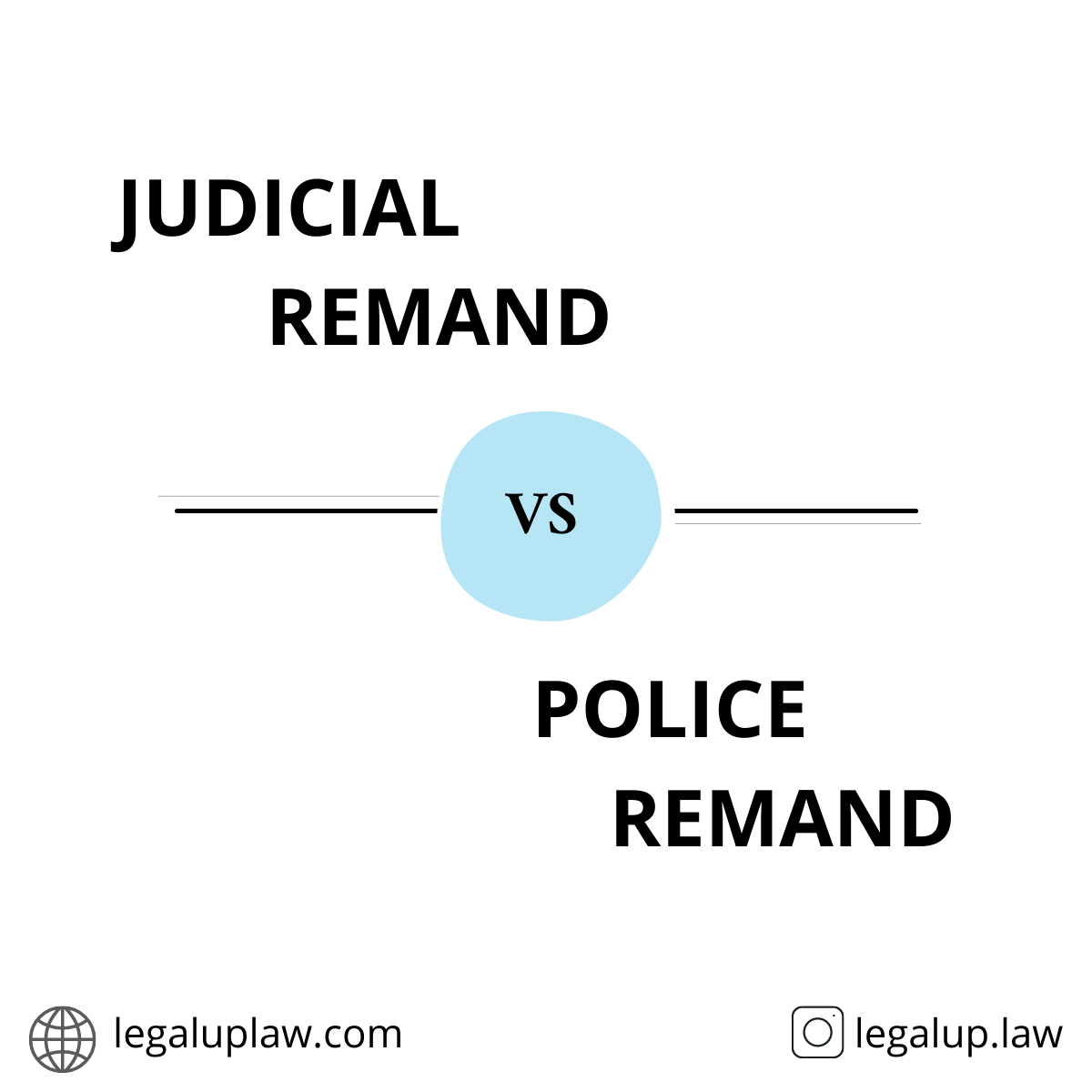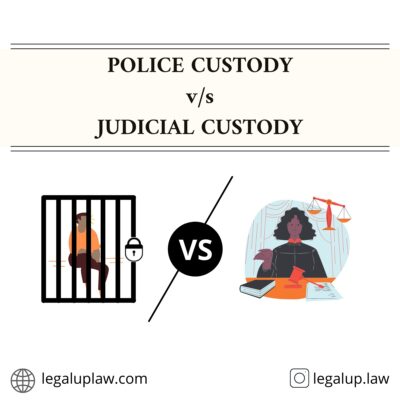In India, for the purpose of Criminal Procedure, the Code of Criminal Procedure (CrPC) is followed. The definition of Police remand and Judicial remand could be drawn from the sections mentioned in the Criminal Procedure Code.
Table of Contents
Section 57 of CrPC
It is a Fundamental Right of the person arrested to be produced before the magistrate within 24 hours of arrest, excluding journey time. Article 22(2) of the Indian Constitution mentions the same. additionally, Section 57 of the Code of criminal procedure also mentioned, that the accused is to be produced before any Magistrate anywhere in India. All of such conditions are subjected to Section 167 of the code.
Section 167: Extension to Section 57 of CrPC
Section 167 of the code, mentions the procedure and duration up to which the person could be kept in either judicial or police custody for the purpose of the investigation. The jurisprudential reason for incorporating such a section is to provide time to the investigation officer for the purpose of investigation on the report on which the person is arrested and simultaneously curtailing the barbaric actions of the state.
Difference between Police Remand and Judical Remand.

So, when a police officer is unable to investigate the report properly within 24 hours, he could demand more time by the Magistrate, for reason reduced to writing. And for such reason when Magistrate believes by seeing the nature of the offence, and its seriousness, he can order further detention which may extend to Seven Days, called as police remand. And if the arrested person is taken into judicial custody for the purpose of the investigation, then such remand is called judicial remand.
Power of Executive Magistrate to give remand.
As mentioned in the procedure, generally police officer takes a person to the Magistrate of the local jurisdiction. but, in the absence of the judicial Magistrate arrested person could be taken to the executive magistrate, who can only grant the police custody which may extend to only Seven Days. and files of such arrest and all relevant documents should be sent to the judicial Magistrate of the local jurisdiction.
Power of Judicial Magistrate to give remand

In the case of the Judicial magistrate, without considering the question of whether the said magistrate has jurisdiction or not, is authorized to make the detention of the accused whether in police custody or in judicial custody, for a term not exceeding 15 days.
In the case of the judicial Magistrate having jurisdiction, he is authorized to make judicial remand up to 60 days, when the alleged offence is punishable with imprisonment up to 10 years. additionally, if the offence committed is punishable with more than 10 years or life imprisonment or the death penalty, then in such cases magistrate in his opinion, can order the judicial remand extending up to 90 days.
What is meant by Default Bail?

In the case where the police are unable to ensure the substantive amount of the evidence, then in such cases default bail is granted to the arrested person, as a matter of right. If a person is willing to produce securities if required. Though in such cases, the application has to be made in the Court of Law for furnishing a default bail.
Recent Amendment
Also, it is mandatory to produce the arrested person within 24 hours in person, and not through video conferencing. This amendment came in the year 2008. The signature of the arrested person would be taken as proof that such person was presented before the court of law within 24 hours.
Important Case Laws
CBI v Anupam Kulkarni, it was held that Police remand should not be resorted to after 15 days of arrest. The nature of custody can be altered from Judicial custody to police custody and visa-versa during the first 15 days mentioned under Section 167(2). After 15 periods, the accused can only be kept in judicial custody or any other custody as ordered by the magistrate but not in the custody of the police.
Hussainara Khatoon v State of Bihar, it was held that it is the duty of the magistrate to inform the accused that he has a right to be released on bail. Bail granted under this proviso remains valid till it is cancelled, and the receipt of the charge sheet in court by itself is no ground for cancellation of Bail.
This article is written by Adish Jain, a 3rd-year law student at Symbiosis Law School, Noida.



